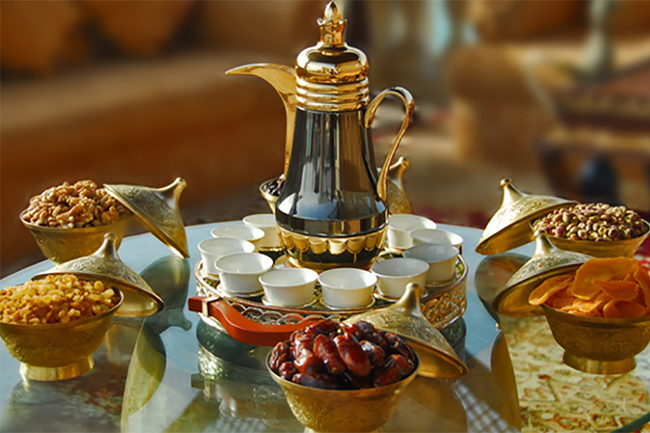During the holy month of Ramadan, children see their parents fasting and they want to participate in the ritual as well. However, although children are not required to start fasting during Ramadan before they hit puberty, many parents allow them to do so in order for them to get accustomed to it before they come of age. It can teach them self-control and prepare them for their fasting tradition, so that it is not a shock to their system when they start practicing it every year.
Since Ramadan takes place during the hot summer days, children can potentially experience fatigue and dehydration because of the fasting rituals, as well as develop bad eating habits that can negatively affect their growth and physical development. This is why it is extremely important to pay attention to their eating habits during the fasting period and instill a proper diet and proper nutrition. Here are some great nutritional tips to help your children enjoy a healthy fasting experience during Ramadan.
Start Gradually
It is imperative that children’s diet during Ramadan is gradual in order for their bodies to slowly adjust to new eating habits. Of course, those eating habits vary from one children to another, as it depends on their eating attitude, nutritional behaviour and their overall health.
Children should fast from breakfast until lunch, for instance, especially when they are under ten. They should start out with partial fasts and increase their dosage gradually, so that their bodies can properly adjust and get used to fasting for when they get older. During this gradual fasting, parents should closely monitor their children in order to ensure that they are getting all the necessary fluids and calories.
The Essential Foods for Suhoor

During suhoor, children should consume a lot of proteins, such as peanut butter, low fat cheese and lubnah, as well as yoghurt or milk. They should also consume beans, lentils, lean meats, nuts, oatmeal, eggs and dairy products. They should increase their fiber intake and eat a lot of vegetables, whole wheat bread, legumes, wheat cereals and dried fruit.
The Necessary Nutrients for Iftar

Between Suhoor and Iftar, children need to drink a lot of water (at least eight glasses of it), as well as other nourishing beverages such as juices, milk and yoghurt. During Iftar, it is important that children eat a lot of hydrating fruit, such as watermelon, mango, berries, coconut, pineapple, grapes and oranges.
This is vital because fruit will give children the energy they need and help them feel refreshed, as well as provide them with all the necessary nutrients to sustain the entire fast throughout the day.
Breaking the Fast
It is very important that children break their fast with dates, soup and milk, juice or water. Dates will provide them with dietary fiber and lentil soup, for instance, will provide them with a lot of nutrients and it is rich in hydrating ingredients and fluids. Lentil soup is also great for children because it facilitates digestion.
When breaking their fast, children should also eat a lot of salads, since they are rich in fiber, minerals and vitamins and they will help keep their bodies hydrated, as well as prevent constipation.
What Children Should Avoid during their Fasting
Children must avoid carbonated drinks, since they can cause bloating and negatively affect their digestion. They should also avoid high-sugar foods, since those cannot provide them with the necessary nutrients. They should also avoid salty foods in order to prevent thirst. Other types of food children need to avoid during fasting are spicy and fried foods. Essentially, they should avoid foods that are heavily processed, as well as fatty foods and sweets.
It is essential not to force children to eat too much, since overeating can lead to bloating, indigestion and a lot of discomfort. Therefore, the best choice would be to split iftar into two separate meals, so as to avoid a large meal. Children should also avoid high-intensity exercises, as that would decrease the energy levels they need to sustain the fasting.
Feed Your Children Wisely
This is very important, because it all comes down to proper nutrition and healthy eating habits. You may think that you should reward your children for their efforts with some treats in order to encourage their spirits, but that would not do them any good. They need to have a well-balanced meal, so that they can provide their bodies with the energy they need for fasting hours.
Therefore, during Ramadan, it is paramount that children consume a variety of different foods, including whole grains, healthy fats, lean meat, dairy products, fruits and vegetables, as well as drink plenty of water and healthy beverages. By making sure that they have a healthy and well-balanced diet, you will keep them hydrated and provide them with energy and all the necessary nutrients they need. However, if they happen to become dehydrated or experience some other health issue, make sure you contact a health care provider immediately and provide your children with the best possible care.